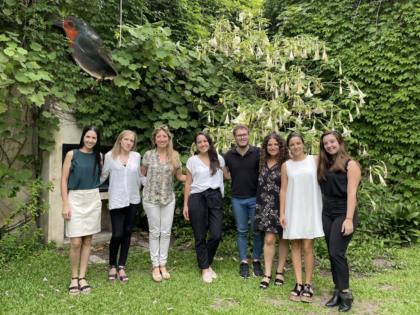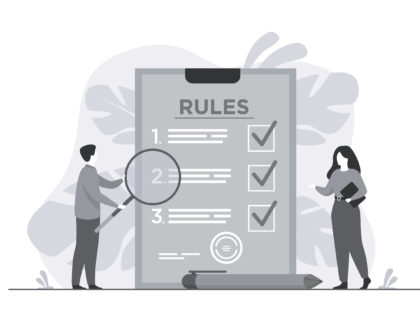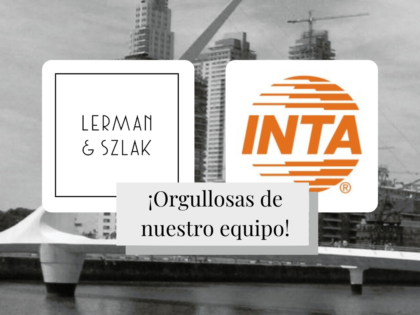5 Questions for a Successful IP Due Diligence
0 Comments
As companies grow, intellectual property portfolios also grow. The set of all intangible rights may include trademarks, patents, copyrights, domain names, data protection, and other related rights.
When the company is faced with a special event, such as an investment process, a purchase by another company, a large contract or a change of control or management, due diligence is performed: that is, a “due diligence” process to review the status of the different legal aspects, and quantify the related risks.
IP due diligence is a fundamental part of this process, especially in technology or franchise businesses, in which intangibles are the heart of the commercial value of the enterprise.
In this article, we compiled the 5 Basic Questions for an IP Due Diligence, which are useful both for the Company, to prepare its portfolio for review; as for the counterpart that will invest, buy or control these assets.
Let’s go through these 5 questions in detail:
(1) Who owns the IP?
That is, under whose name has the IP been registered? There are different kinds of rights: rights that do not to be registered, like contractual rights or human rights; and rights that only existed as a result of approval from the appropriate authority. IP rights are in the second category: you generally have to register your IP in order to have a right over it. Legally, the value belongs to the person who has ownership in his name. Are the goods in the name of the company that uses them, or that licenses them? Or are they in the name of the founders (natural persons), or on behalf of some employee, or of an unrelated company, or of a founder who is no longer there, or of a company that no longer exists?
All this must be put in order through the necessary transfers, to ensure that the company who has 100% in their name the IP rights.
If there are several owners, or institutional owners (e.g. universities or research and development agencies), or individual owners who are married (and whose spouse eventually has rights over the good and the profits that are paid for by royalties), then there are risks that may jeopardize the planned marketing of the IP in question.
(2) What IP do we already have registered?
To begin with, we will have to do a survey of the records: evaluate what is protected, which records are current and which are not, if all the maintenance fees have been paid, if the corresponding declarations of use have been presented and all the registered trademarks in the legal term (e.g. in Argentina, in the last 5 years).
The same applies to the registration of databases, which in Argentina is a requirement, and which indicates compliance with data protection regulations.
And with this question, more inquiries arise.
(3) Was all the relevant IP of the company registered?
Sometimes the due diligence process identifies risks not only for what the company did but also for what it never registered! It is common to see that companies do not have their main names protected, or their domains under the relevant extensions (e.g. they may have “.com.ar” but not “.com”), or their main technology never received registration under copyright.
All this is especially relevant when there are license agreements in which the company is a licensor; since it is the most convenient that the IP is registered to interpret and define what is licensed.
For this exercise, we have to understand the activity and business of the company, to identify everything that should be registered as soon as possible.
As an example: it is common to see that the company registers the brand in a class in the beginning, but does not register it in another very relevant class that reflects the evolution of its business. It is also common to see that an old logo is registered, and the new one has not yet been registered. Or a logo is registered of which only a part is used (e.g. without the download or slogan). In all these situations, it is convenient to present new records.
(4) What has the company done to use and defend its IP?
On the one hand, we review the judicial and extrajudicial actions. Are there lawsuits pending? In what state are they? What are the associated legal risks – can we lose records? Have others’ IPs been violated at any time? What agreements have been signed so far, if any? To respond, a combination of public records queries and the same company will be required.
It is famous the case of the transaction between Volkswagen and BMW, in which Volkswagen thought that, among other goods, was acquiring the Rolls Royce brand. In the due diligence, the lawyers failed to review a contract granting an exclusive license to another company in the BMW group (that is, it would not allow Volkswagen to use it!) Volkswagen paid $795 million for a transaction around Rolls Royce that finally did not allow him to use the brand!
On the other hand, it is convenient to see which oppositions were presented, and in general what defense strategy was used, to also assess how strong are the current brands and to what extent the activity in the past will affect the future defense (e.g. in respect of similar brands of which has tolerated coexistence for more than 1 year, and today we can not ask for a cessation of use even if they bother us).
(5) IP International: And what has been done with the IP in other countries?
For companies that have activity or international projection, it is equally important to ask the same questions above but for the countries of interest. The IP rights are territorial, and although the records in one country often serve as a positive precedent in another, the truth is that each country has its legislation with different rules and registers.
It is usual for portfolios to be broader in the country of origin of the company and that fewer goods are registered abroad, either because of a cost issue (normally foreign records are more expensive than local ones) or simply because of inaction. We must review this with precision, especially to be able to confirm that the status of the registrations abroad is not an obstacle to implement future business plans.
Moreover, if there are international clients and/or users, especially in Europe, it is also very important to review compliance with personal data regulations, reviewing the company’s Privacy Policies, both internally and with customers/users, security of the bases, among other aspects, to ensure compliance with applicable international regulations such as the GDPR (General Data Protection Regulation) of Europe.
In our experience, these are the five fundamental questions of all IP due diligence. While it is very valuable to have the help of the trusted lawyer to carry out the process, the truth is that it is also fundamental that the business people in charge of the deal also have these issues in mind. This way, they can investigate the different aspects to identify relevant risks throughout the negotiation. As a consequence, they are able to refine the most valuable negotiations, avoid unnecessary costs and ensure that you pay the fair price for what you buy.

































































































































